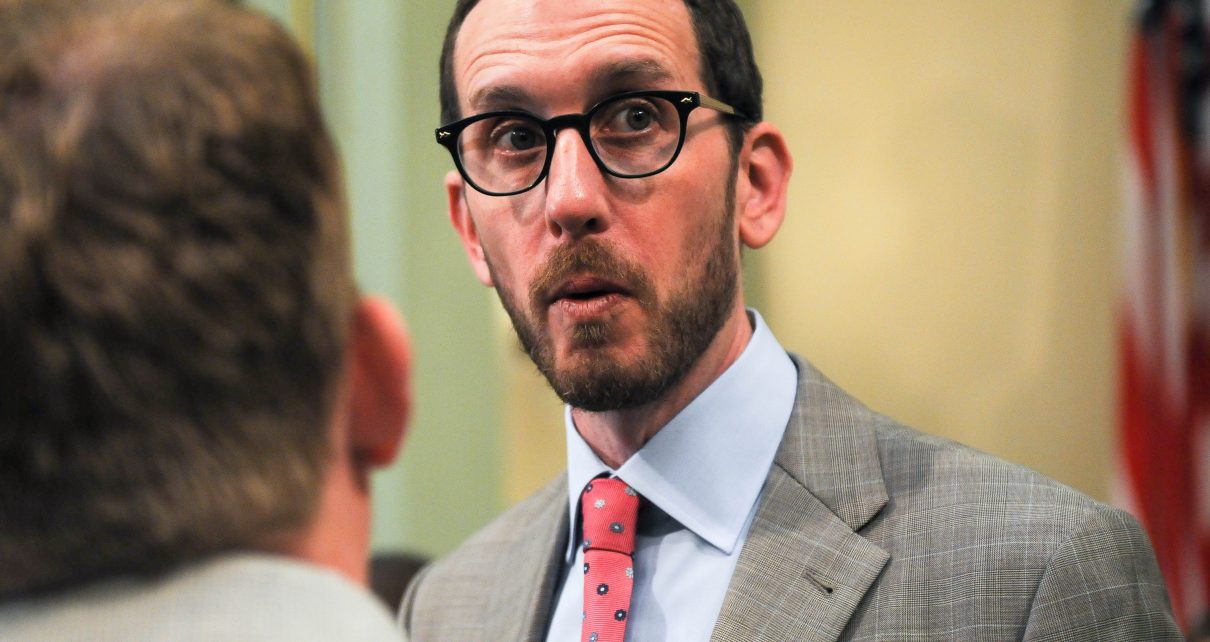
Senator Scott D. Wiener. (Photo: Kevin Sanders for California Globe)
2020 General Election Preview: 11th Senate District Dem v. Dem Race
California Globe takes an inside look into the close Fielder v. Wiener race in San Francisco
By Evan Symon, October 6, 2020 7:29 am
The 11th Senate District:
The 11th District is San Francisco, San Francisco, San Francisco. Oh, and Daly City from the next county over, but really it’s just pretty much The City.
This is a very rich district as seen by housing prices here starting to match the GDP of small countries. But it’s also incredibly diverse, with whites and Asian-Americans comprising about 2/3rds of the district, not to mention rapidly changing. The image of San Francisco from 50 years ago, one with a smattering of unique districts such as the hippy district of Haight-Ashbury, the gay Castro district, the Chinese-American Chinatown, and the Hispanic Mission district is quickly disappearing thanks to massive gentrification. And despite the recession, residents screaming for affordable housing, and some companies moving out, tech and high-priced apartments are still king here.
Also, the district is one of the bluest in the entire state – only 7% identify as Republicans. It’s Democrat through and through.
History of the 11th:
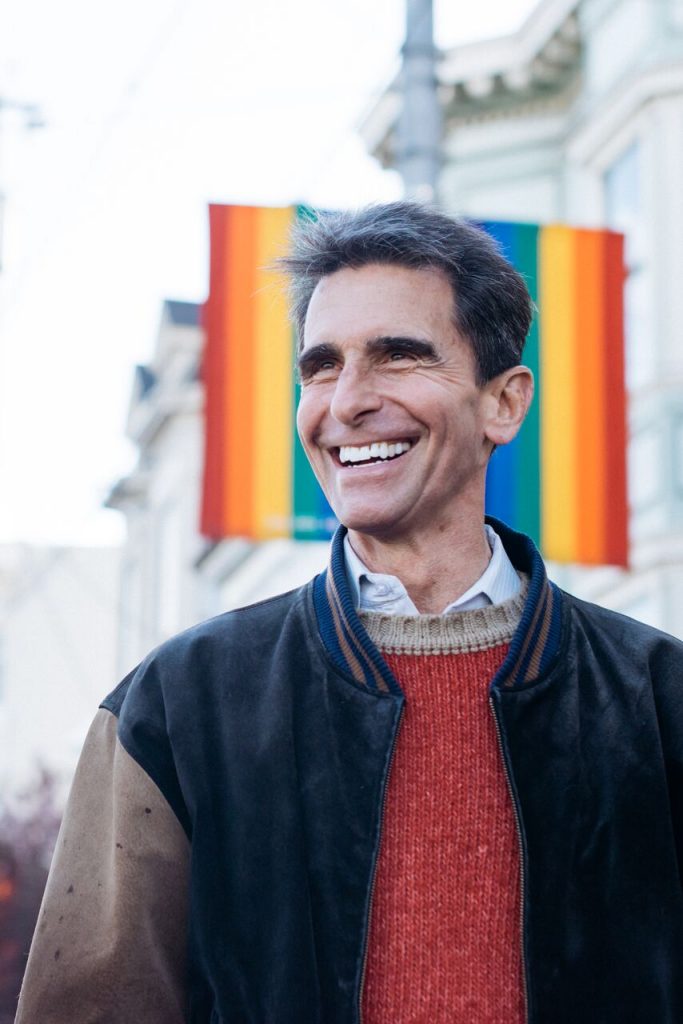
There have been only two state Senate elections in the 11th since the beginning of last decade. Former Democratic Senator Mark Leno won in 2012 by about 85% of the vote. In 2016, with Leno not running again, San Francisco Supervisor and current Senator Scott Wiener (D-San Francisco) battled it out with fellow Democrat and Supervisor Jane Kim in a very heated race. Wiener won by only 8,000 votes 51% to 49%, with the LGBT community being the deciding factor by throwing most of their votes Wiener’s way
Considering that 7% of the district are registered Republicans and that there hasn’t been a Republican mayor of the city since before the Vietnam War, there is no real multi-party battle here. Instead it’s based on where candidates stand going from the center to the left. You can see this in many other elections here, such as House Speaker Nancy Pelosi (D-CA) more often than not running against other Democrats here.
In March, Senator Wiener and Democratic educator Jackie Fielder beat the lone Republican Erin Smith. Wiener had a large 54.6% take, with Fielder only netting 32.1% of the votes in the Primary. Wiener being so much higher than the 50% mark set him up for an easy victory this year over his young challenger. But after several months of calls for social justice following the George Floyd protests, things shifted, and now the race has become much closer than many predicted.
Scott Wiener:
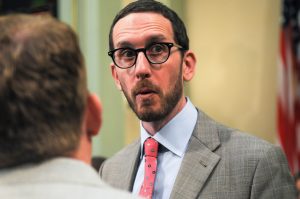
One of the farthest-left members of the Senate, Wiener has seemingly been groomed to become a career politician. Graduating from Duke and Harvard, Wiener came to California in the 90’s and quickly rose up the lawyer ranks, becoming deputy city attorney in 2002. He was elected to the San Francisco Board of Supervisors in 2010, only leaving in 2016 after he was elected to the state Senate.
In only four years, Wiener has become one of the most polarizing lawmakers in California politics. Not only has he tried (and failed) to pass radical housing bills such as the infamous SB 50, but he has also authored bills banning surgery on intersex children, giving meth addicts cash for treatment, creating a non-binary gender category on driver’s licenses, relaxing the sex offender registry, and jailing based on gender identity. Half of them read like headlines from The Onion.
He has been most persistent on housing, trying to create more affordable housing while at the same time trying to largely end many single-family housing measures. This has had the odd effect of uniting housing developers and local residents against gentrification.
He also has one of the farthest left voting records in the state Senate.
Wiener’s platform this time around includes housing and LGBT issues, but he also goes after climate change, consumer protections, health care, and criminal justice reforms among a host of other issues.
Wiener has lost a few endorsements recently, most notably the California Labor Federation union, but still has many backers and funders: Pelosi, Newsom, Feinstein, Harris to name a few.
If it were any other year he could sit back and watch the votes roll in. However this is 2020, and his challenger this year has been surprising to say the least.
Jackie Fielder:
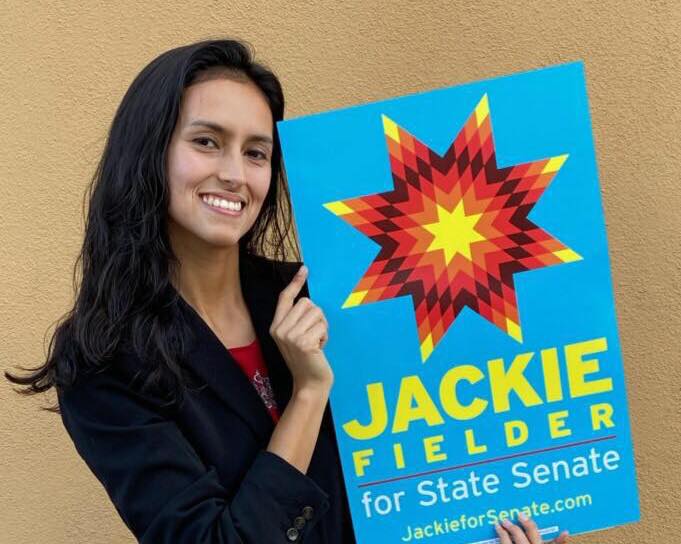
A 25-year-old college professor with no prior political experience, Fielder wouldn’t have stood much of a chance in virtually any other year.
But Fielder has a unique background. A woman, a Hispanic, a Native American, and a lesbian, Fielder is pretty much an amalgamation of the ideal Democratic candidate right now it terms of who she is. Plus being Stanford educated puts her on the same academic background ground as Wiener.
She also has an activist edge, fighting against oil pipelines going through tribal lands and leading the San Francisco Public Bank Coalition. Fielder also identifies as a Democratic socialist, which puts her more on the left than Wiener, something few people thought was possible before this year.
Her “build for need, not profit” approach of housing has created a large gap between her housing policy and Wiener’s. She’s also touching on issues few other lawmakers are even talking about right now, such as income inequality. Along with climate change and George Floyd-inspired police and social reforms, Fielder is aiming for the large left contingent in San Francisco and is attempting to make in roads into Wiener’s base. In fact, she already has, gaining the support of many LGBT organizations out from under Wiener, including the Harvey Milk LGBTQ Club.
As for her endorsements, unions are pulling more and more for her as election day gets nearer, drawn to her platform benefiting the remaining lower-class and blue collar families in the city. Pretty much every teachers union is behind her, as are many Millennial and Gen Z groups.
Fielder has enough going that there is an off-chance that she could pull an AOC and win here.
What does this mean?
As we saw in the primary, Fielder had an initial big chunk of the Democratic vote. But after a summer where many of her platform issues became hot button issues overnight, not to mention being aimed at San Francisco residents angry about all the expensive changes, Fielder has gotten closer. No major polls have given indication just how close, but many endorsers switching over to her race is a big clue that many see her as a possible victor.
Ironically, this may mean that Republicans could ultimately decide who wins here. They may be 7% of the population, 10% if you count undecided voters who voted for Trump in 2016, but in an election this close, and with some indication that Wiener isn’t above 50% anymore, it’s ultimately between an outspoken liberal way to the left, or an equally outspoken liberal closer to the socialism end of the spectrum.
For the Republicans here who may be the deciding factor it may seem like choosing which hand they want chopped off. But considering that both candidates have a lot of power, especially Fielder’s large contingent of young people, it could indicate just where the city is going in the next few decades.
Wiener is most likely winning here, as many, even in San Francisco, are wary of socialists. But it’s not a sure thing, and a slip-up could give Fielder the victory.
- Paper V. Plastic - April 20, 2024
- Two More Insurance Companies Pull Out Of California - April 19, 2024
- San Francisco Files Lawsuit Against Oakland Over Airport Renaming - April 19, 2024



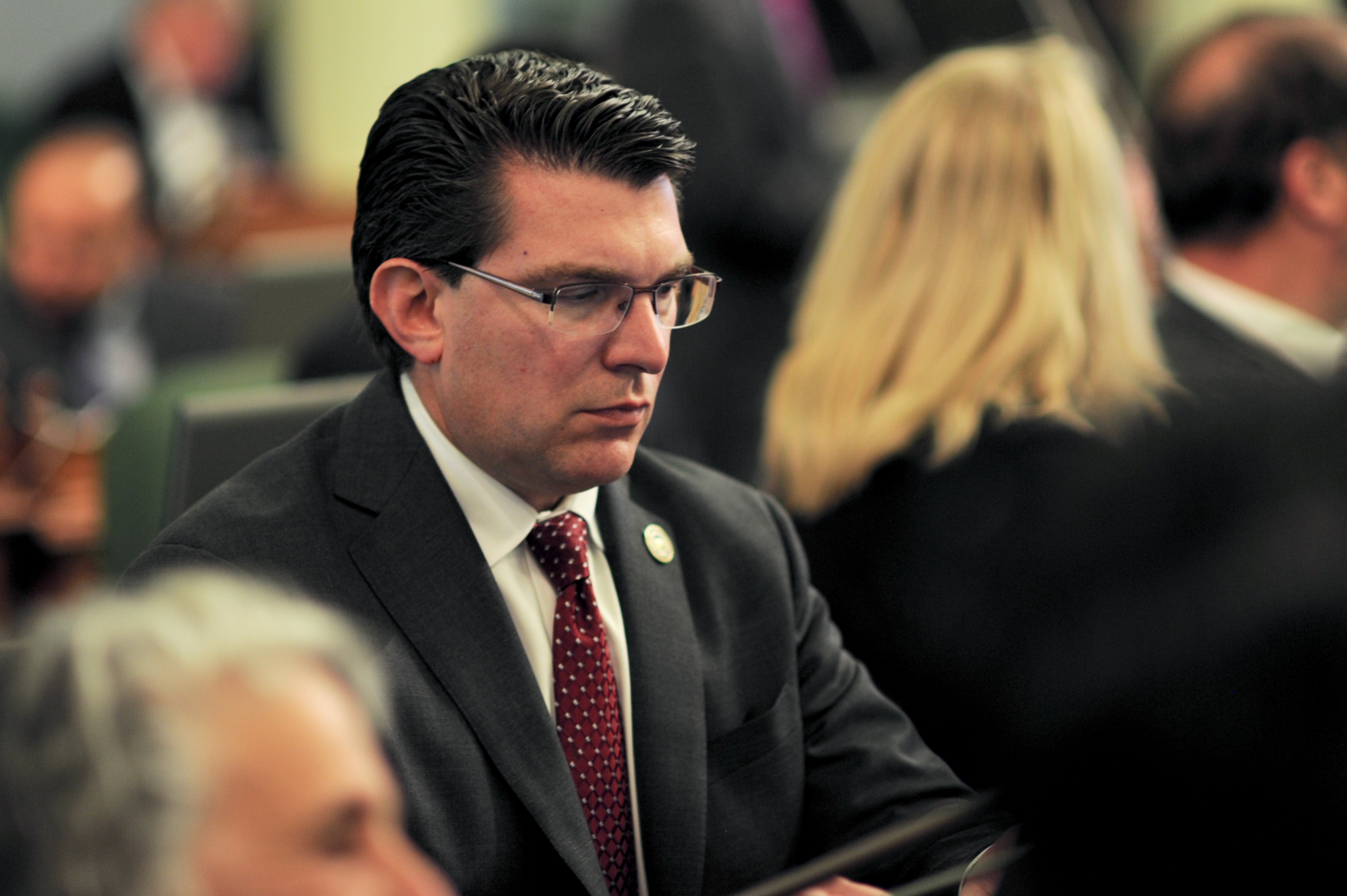

One thought on “2020 General Election Preview: 11th Senate District Dem v. Dem Race”